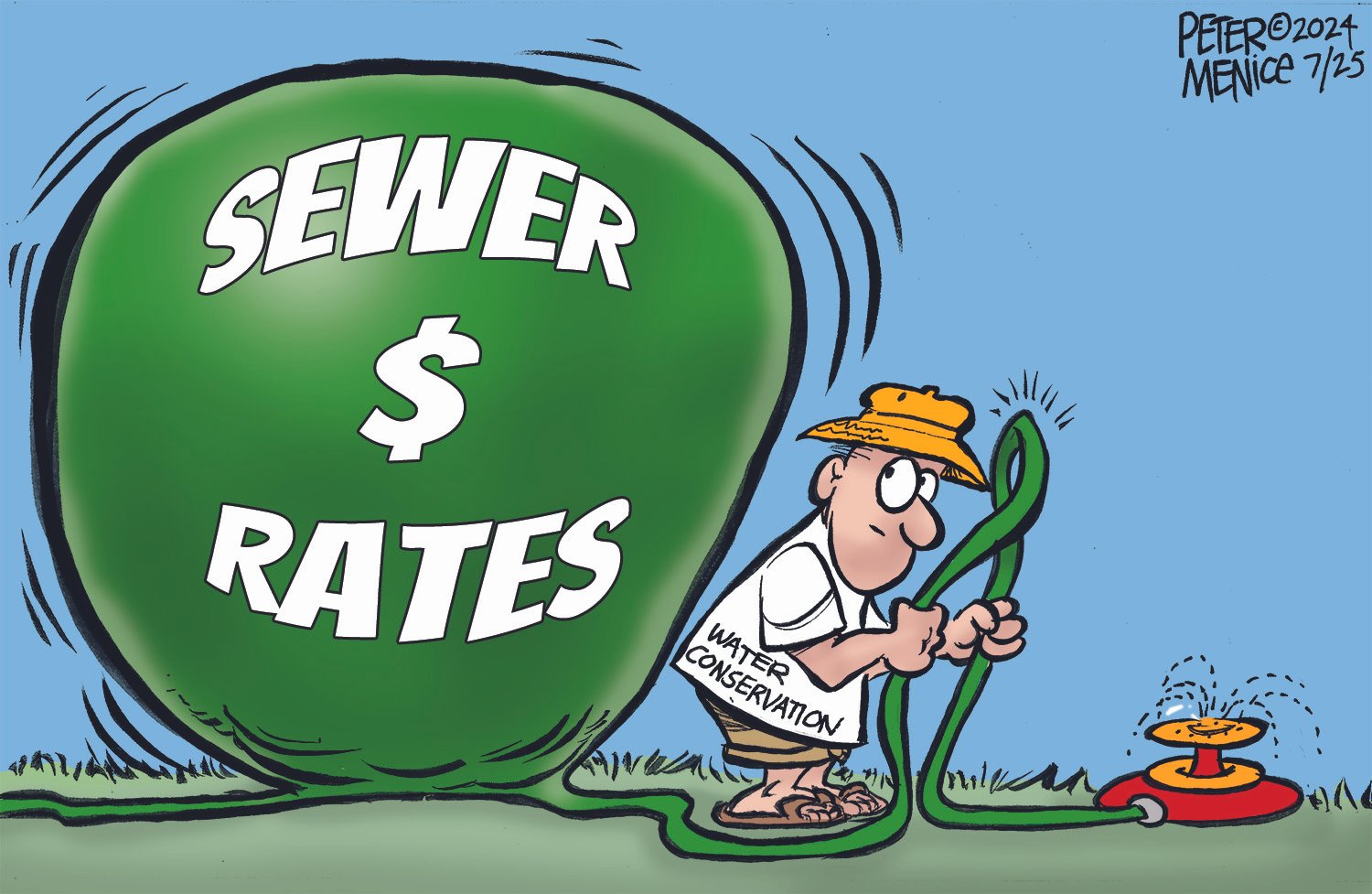As Hullonians use less water, sewer bills to jump 2.5% beginning next month
/By Carol Britton Meyer
A townwide reduction in water usage means that sewer bills are going up, begnning next month. Ratepayers will notice a sewer rate adjustment of 2.5% on their August bills, along with a $10 a month base rate increase.
“The typical increase will amount to about $144 per year, which includes the $10 a month base rate increase,” Director of Wastewater Operations and Assistant Director of Public Works John Struzziery told The Hull Times.
Although the Hull Sewer Department was not expecting an increase for the new fiscal year, water consumption (which is the basis for sewer bills) is below anticipated levels for several reasons, resulting in an unanticipated loss of revenue, according to the town’s recent newsletter.
Contributing factors could include water conservation measures taken by ratepayers resulting in reduced water usage, roughly 250 outdated water meters indicating erroneous zero-use readings, inaccessible water meters resulting in estimated water usage that is normally lower than the actual amount used, and an increase in ratepayers who delay bill payments for multiple quarters.
Town officials – including Struzziery — continue to work with Weir River Water System staff to examine the reasons for the lower consumption and revenue.
“We’ve always tracked this trend in ratepayers using less water – which is nothing new – but the decrease last fiscal year is more than we anticipated, and sewer department revenues aren’t meeting expenses,” Struzziery said. “The sewer department’s budget for FY25 represented only a 1.1% increase.”
The sewer department is an enterprise fund, which means its operating expenses must match the revenue received.
“The Massachusetts Department of Revenue, which monitors enterprise funds, has indicated that a sewer rate adjustment needs to be implemented so the sewer operating budget will not go into deficit,” according to the newsletter.
“This past fiscal year, the DOR placed a hold on the sewer department’s capital improvement accounts in the operating budget – a total of $576,063 – due to FY24 revenues falling short of the projected revenues,” Struzziery explained. “This is the first time this has happened to my knowledge. Those accounts are not being held any longer, so those funds got rolled over into the Fiscal 2025 sewer department budget.”
Although in the past the sewer department has taken other measures to minimize rate impacts by delaying capital improvements and other major projects, recent sewer breaks have shown the vulnerability and impact that such incidents have on the town's sewer system and the need to continue to invest in it, Struzziery said. The two recent sewer breaks (Nantasket Avenue at Edgewater Road in June 2023 and George Washington Boulevard in January 2024) cost about $500,000 each to repair.
“Investing in the infrastructure now is less costly than repairing multiple sewer breaks,” Struzziery noted.
This latest increase will contribute toward paying operating expenses, he said.
“Forty-seven percent of the sewer department budget currently goes to wastewater operations costs, which include paying the plant operator Woodard & Curran for its services, with about 34% going toward debt service to pay off prior bonded projects related to system upgrades,” he said.
The town continues to seek grant funding to help offset the costs of future projects after receiving – or expecting to be awarded – more than $9.7 million in grants, in addition to $12.3 million in low-interest funding over the past eight years.
Like what you’re reading? Stay informed with a Hull Times subscription by clicking here.
Do you have an opinion to share? Click here to write a Letter to the Editor.











